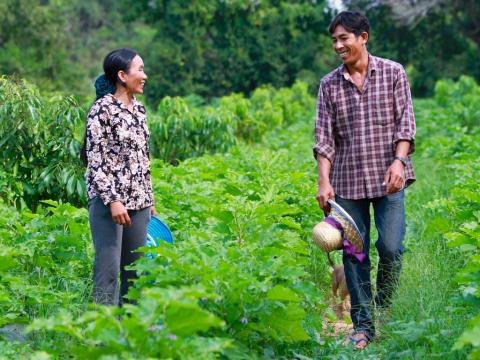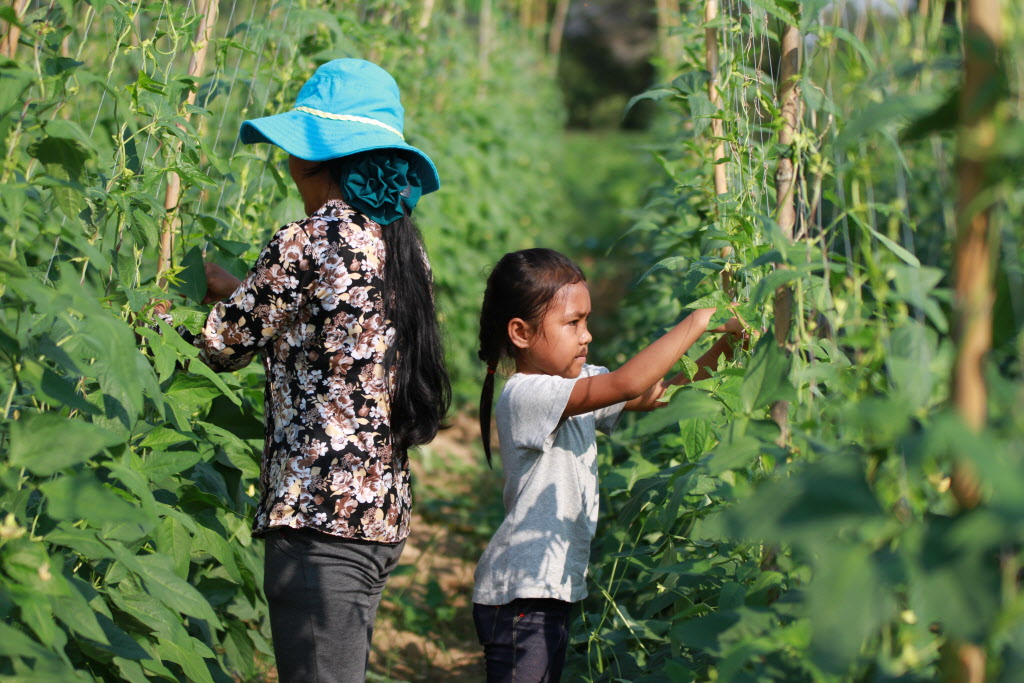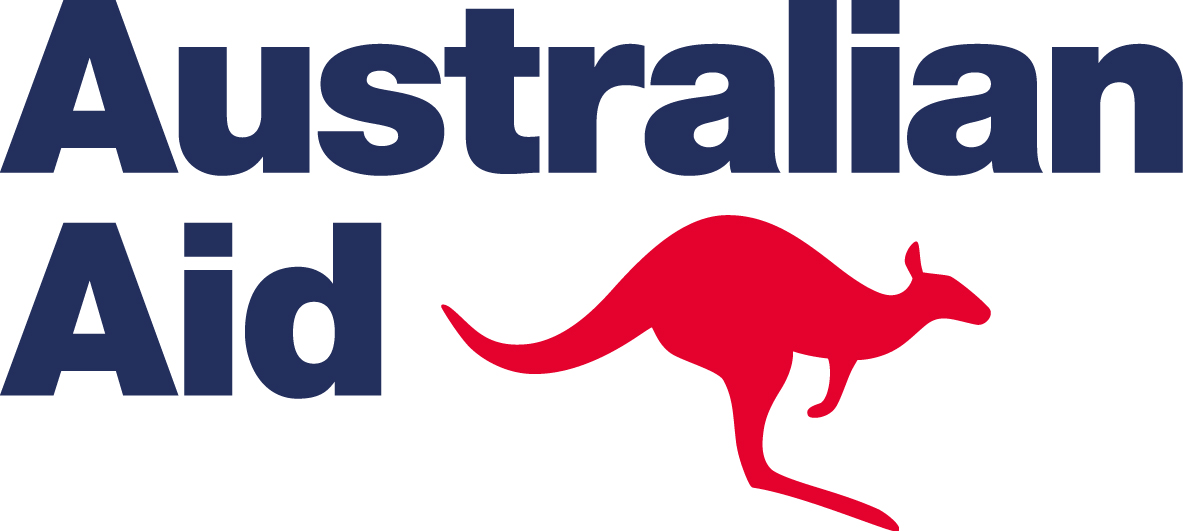Triple yield - Cambodia sustainable business development

Sreynich, 9, and her two siblings weed grass from the eggplant garden and collect feed for their two cows which are tied in front of the house in Banan district, Battambang province.
On the other side of the garden, their parents are sharing about their experiences and growing techniques. They are not shy to share about how they care for their garden. They are enthusiastic about farming.
They are working on land that used to generate about USD $225 per year, but now generates three times as much.
They used to grow green beans and red chillies, but now the plot produces a variety of plants like: long bean, cucumber, eggplant, spinach, melon, watermelon, and pumpkin, all of which can generate income in just a few months. They also have over 200 longan, mango, and orange trees.
Sreynich’s mother, Ravy, 40, says, “I had no idea about what to grow on the land. I just practiced the traditional methods.” Ravy was born during the Khmer Rouge Regime, and grew up during civil war.
How did the change happen?
“I learnt about agriculture from Uncle Mab, (her neighbour),” says Ravy. “I found that he has earned a lot of money from agriculture work. I wanted to do that too. I visited his farm and tried to learn from him. The techniques are very useful for my family.”
Mab participated in World Vision training on improved agriculture techniques like proper plant care and fertilization, seed selection, and how to plant according to market demands. They also do field practicums and farm visits.
“We wanted to see the villagers practicing and applying their skills after learning and also sharing the knowledge with their neighbours. I am excited to see the change of the community,” says Lum Orng, a World Vision staff member.
Ravy became a member of the Agriculture Cooperative (AC) group, a programme initiated by World Vision, and received a loan from the group in order to buy fertiliser for her farm.
Ravy’s cooperative, called Kanteu I Pheakdey Reaksmey Chulsa, provides loans, and has businesses like a cow bank, fertilizer supply, rice seed supply, a grocery store, and a rice bank. The co-op has generated USD $25,000 in capital resources, with 162 members in the group.
Grant Profile
Grant Project Name: Cambodia Sustainable Business Development
Funded by: Australian Department of Foreign Affairs and Trade (DFAT) - Australian NGO Cooperation Program (ANCP) and Thank You Group
Time frame: 1 October 2014 - 30 June 2019
Purpose and Objective: Agriculture Cooperative members from 168 Agriculture Cooperatives will have improved livelihood for well-being of their children in nine target provinces by 2019. The ultimate goal of the project is contribute to the improvement of child wellbeing through improved livelihood of poor and vulnerable households. The main child wellbeing outcome that the project will contribute to is ‘Parents or caregivers provide well for their children’ and ‘Adolescents are ready for economic opportunity’.
Project objectives:
1. Agriculture Cooperatives have strong governance and leadership with transparency and prosperity
2. Agriculture Cooperatives are sustainable and have profitable businesses
3. Agriculture Cooperative Union and network strengthened to improve business performance and functionality of Agriculture Cooperatives.

